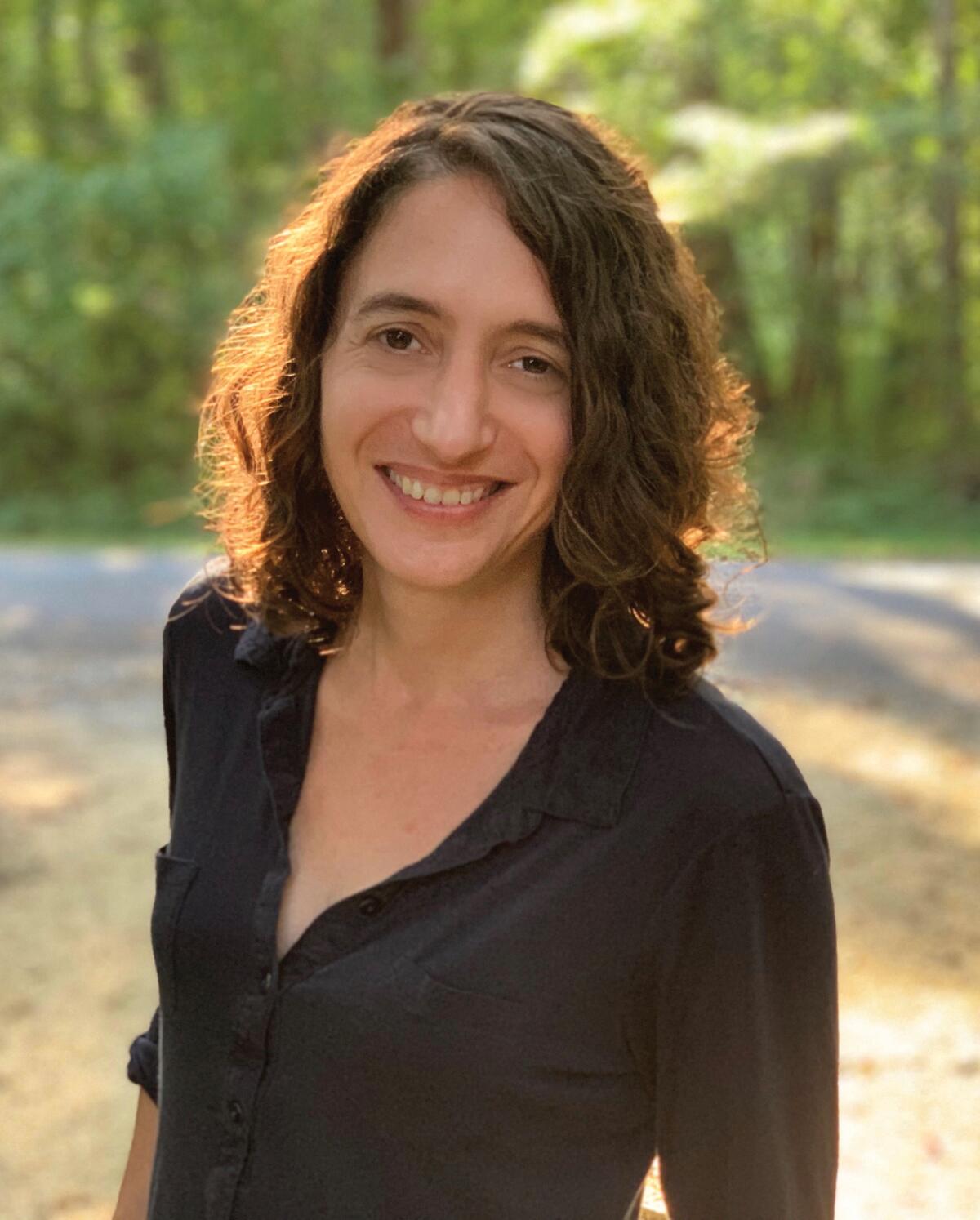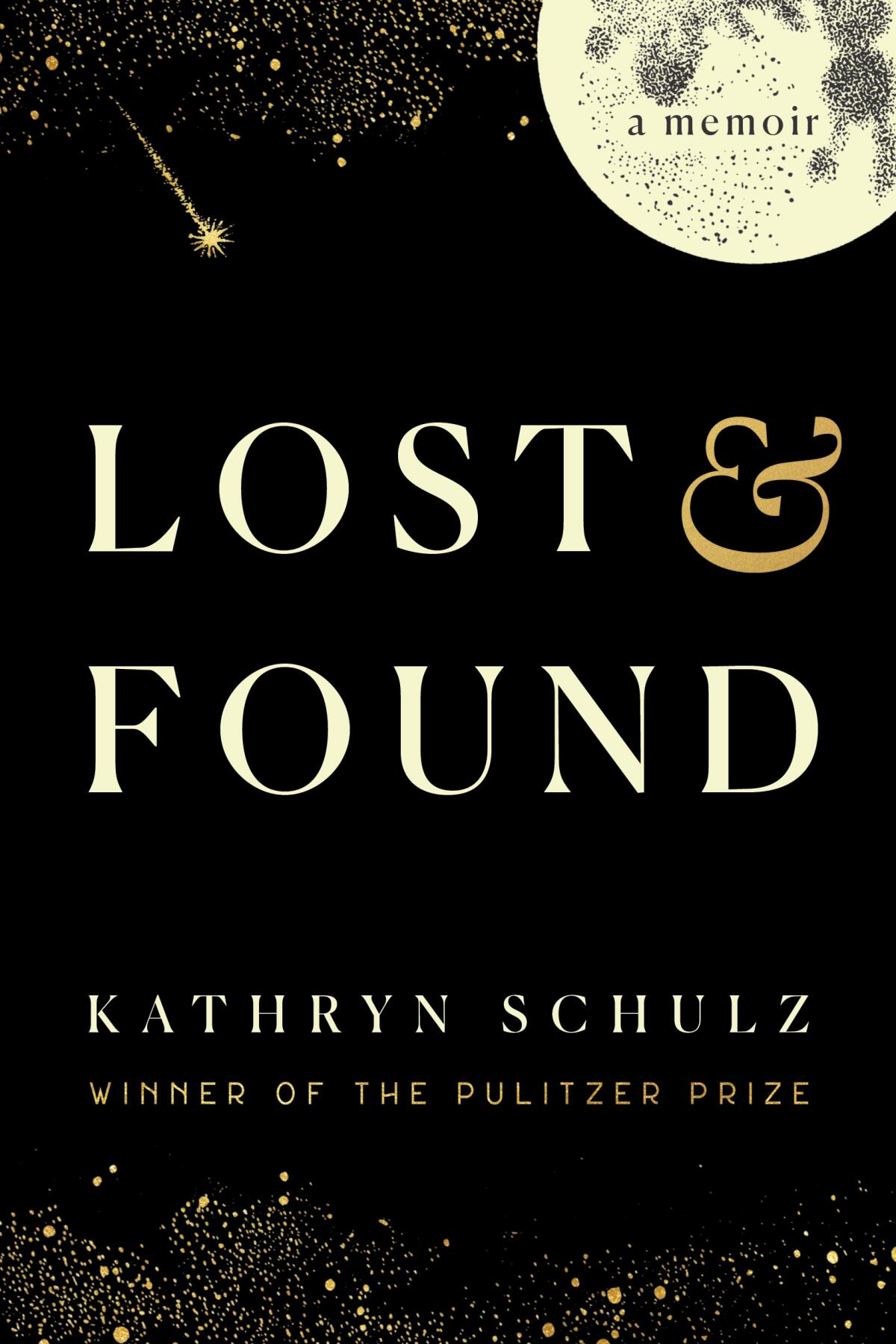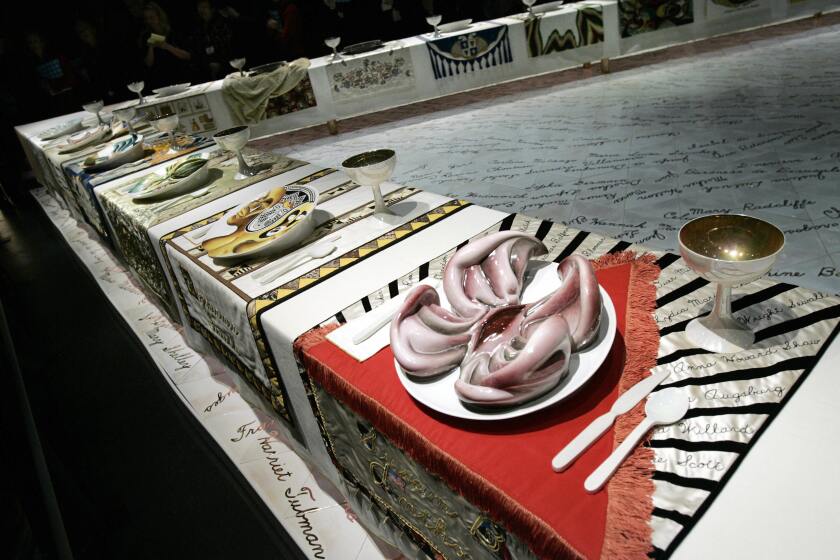How love, death and ampersands changed Kathryn Schulz’s life

- Share via
On the Shelf
Lost & Found: A Memoir
By Kathryn Schulz
Random House: 256 pages, $27
If you buy books linked on our site, The Times may earn a commission from Bookshop.org, whose fees support independent bookstores.
Living in the Bay Area, it’s impossible not to call to mind Kathryn Schulz’s Pulitzer Prize-winning article, “The Really Big One,” with any little shake on the fault line. But in addition to her reportage for the New Yorker, Schulz has weathered her own earthquake: In the course of 18 months, she fell in love (with writer Casey Cep, now her wife) and suffered the death of her beloved father. The result of these seismic changes is Schulz’s new book, “Lost & Found,” a memoir in which she tells a story not only about the art of losing and the joy of finding but also about the murky area in between — the conjunction of love and grief that gives life meaning and urgency. Schulz spoke with The Times from her home in Maryland to expand on her book and discuss a newer season of loss (the COVID-19 pandemic) and joy (a new baby, patiently waiting in another room).
Memoir is new territory for you. Can you describe why you needed to write this book? And how was writing about your own life different for you?
It’s been interesting to write something personal, because readers respond to it in a very different way. I had written about my father’s death but I didn’t necessarily think it was a book. I was on a late-night drive with my partner in Alabama, having a conversation about grief, and she said, “What if you write about discovery also?” At that moment, I thought, “Oh, there could be a twin story — actually, a three-part book.”
It begins with your father, who was hyper-verbal and curious about everything. So it’s all the more terrifying when it looks like he is sliding into dementia. But he regains his personality when you and your sister decide to take him off some medication. It adds a new layer to the book: recovery.
That’s a powerful example of recovery — we can reunite with something we’ve lost. There is a version of you that’s healthier, happier, that doesn’t have to rely on external stimulants. We thought we would lose him to dementia, and it was reversible. This made me really interested in finding as a category.
Two big novelists take sharp turns in new books: Chimamanda Ngozi Adichie mourns in “Notes on Grief”; Jhumpa Lahiri writes a novel, “Whereabouts,” in Italian.
When he enters the hospital, you write that you knew it was the end because of the deafening silence. There’s a sense that time just stops. There’s a great episode of “Buffy the Vampire Slayer” when Buffy’s mother dies and everything is just frozen — but Buffy notices everything, the sunlight in the curtains, the birds chirping outside.
That Buffy scene is quite smart, because death of someone close to you is an interesting lens — things do become clearer and sharper in the moment. There was for me a sharpness to the doorknob, to the everyday. Grief should remind us to pay attention to the everyday. Any brush with death tells us not to take things for granted — it does truly live in the mundanity around us.

You delve into the etymology of each word of the title, including “and,” before introducing your personal stories. Why did you need to include the linguistic background?
I love language, and words are powerful. The history of loss has always been fascinating to me. I really had it backward: The original idea of loss was deeply related to a lament and grief, and only later did it become about mundane things. With “and,” I authentically felt it fascinating. I knew I wanted to write about conjunctions. The ampersand had been the 27th character of the alphabet; how did we forget that? Our great-great-grandparents included it as part of the alphabet. Emotional conjunction is omnipresent — you cannot make it to adulthood without becoming aware of how contradictory life can be.
I love the idea of “emotional conjunction,” the idea that joy and grief often occupy the same space. Very apropos to this moment.
Exactly — the idea of a silver lining. With the pandemic, it’s horrifying, and people are dying and dealing with severe gaps in childcare and work. You can hold the two feelings in your head at once: I’m so grateful to be able to spend more time with my family, or I feel so lucky that I haven’t lost anyone ... but I really miss going to restaurants. It’s this dissonance that is so tricky to navigate.
And then there’s the joy of meeting Casey and falling in love.
There aren’t many joyful memoirs about falling in love. It’s difficult to find happy nonfiction.
Over the last three months, 17 writers provided diaries to the Times of their days in isolation, followed by weeks of protest. This is their story.
How did Casey feel about being such a huge part of this book? You’re both writers. So she must have known what she was getting into ...
She was incredibly supportive but she didn’t know — there was no glimmer that I would write something this personal. It is somewhat comical. She is actually a more private person than I am, and it’s a testament to her faith in me that she never hesitated.
Is there anything in the process of writing this book that has helped you deal with the losses of the pandemic?
It was troubling and helpful to be thinking so much about loss at a time of so much loss. It helped that I had been thinking about other episodes of sweeping loss, like the world wars, other pandemics and natural disasters. I was ready, in a weird way. ... I recognized what people were going through. How do we feel about putting all these losses in the same category? “I’ve lost a person, I’ve lost my job, I’ve lost my ability to cope” ... doing these complications of gratitude. I hope this book will be useful, to remind readers that it’s acceptable to feel both — to be grieving the loss of your wedding while others are grieving the death of their loved ones. At every scale, we experience loss.
Has this outlook changed since you became a parent?
Nothing and everything has changed. I delight in our life together, and it’s thrilling to watch Casey with our daughter — one of the reasons this relationship has been rock solid is because I knew she’d be a wonderful parent. Now I cheerfully get up at 6 a.m. — I’m a lifelong night owl, which sounds trivial, but it’s not — because it is a deep joy to see my daughter in the morning. We’ve created this little creature — and it’s radical.
Catherine McCormack, a course director at Sotheby’s, talks about her new book, “Women in the Picture: What Culture Does With Female Bodies.”
Ferri’s most recent book is “Silent Cities: New York.”
More to Read
Sign up for our Book Club newsletter
Get the latest news, events and more from the Los Angeles Times Book Club, and help us get L.A. reading and talking.
You may occasionally receive promotional content from the Los Angeles Times.











